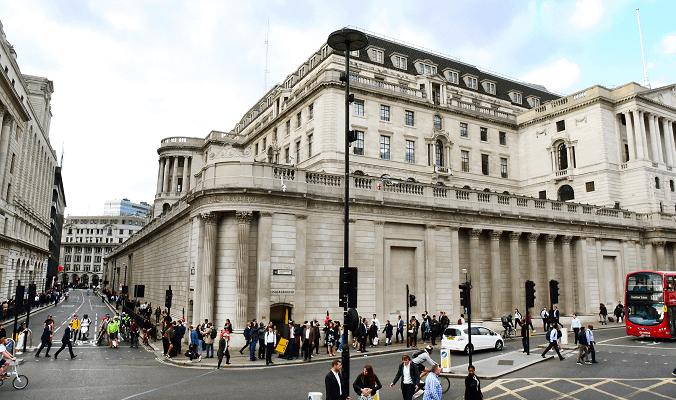The Bank of England has raised interest rates to 3% which is the largest increase in 33-years as they are trying to prevent a recession.
Monetary Policy Committee (MPC) raised the base rate which stands at 2.25% and inflation is currently 10.1%.
The Bank of England’s MPC stated: “If high inflation continues, it will hurt everybody. Low and stable inflation helps people plan for the future.
“Raising interest rates is the best way we have to bring inflation down.
“We know that many people are facing higher borrowing costs. In particular, many households face higher mortgage rates.
“And some businesses face higher loan rates. It’s our job to make sure that inflation returns to our two percent target. In total, since December 2021, we have increased our interest rate from 0.1 percent to three percent.”
Joshua Raymond, the director at online investment platform XTB.com said, “We’ve seen investors move quickly to strongly sell out of the pound in the immediate reaction to the BoE’s 0.75 percent interest rate hike, the biggest hike for 33yrs.
“The pound fell around one percent against the US Dollar in volatile trade and hit its lowest levels against the euro in a week. That reaction tells you investors are disappointed not necessarily in this hike alone but the guidance from the central bank that rates won’t need to rise much further to contain higher inflation.
“We should remember that the market has long deemed the Bank of England’s response to inflation and far too slow and too weak. The new guidance is likely to be seen as a return to that interpretation.
“And the troubling part is, should the BoE be correct and not need to hike rates much further, its more likely to do with the severity of the recession the Bank itself says the UK is already in. That’s also bad news for the pound.”
Mohsin Rashid, Co-founder of ZIPZERO told LondonLovesBusiness.com, “The hikes are getting bigger. This is the single largest rise in interest rates since October 1989 and it will have devastating consequences for both consumers and businesses alike.
“Millions of consumers with debt such as mortgages, credit cards, and personal loans are going to see their finances stretched to breaking point; the Financial Conduct Authority has suggested that more than 100,000 are at risk of losing their homes next year.
“Meanwhile, the glimmer of certainty consumers once had thanks to the promised two-year energy price cap has evaporated faster than the Truss government. Likewise, businesses face higher borrowing costs, limiting investment, and a consumer base which is tightening its belt.
“Given such a testing economic climate, businesses must be wary of simply increasing prices and placing yet more strain on consumers. Rather, they must identify strategies that lower costs and drive sales while ensuring products remain affordable.
“There’s a clear solution. Brands and retailers spend a collective £27 billion per year on digital advertising via Big Tech.
“Herein lies a unique opportunity to use alternate marketing and customer engagement methods, which will divert this huge sum back into the pockets of consumers through cash rewards while allowing businesses to directly reach their intended audience and sales targets.
“The goals of businesses and consumers are not divergent. In times of crisis, the two must come together to ensure the other’s survival – creative redistribution will be key to achieving this.”

